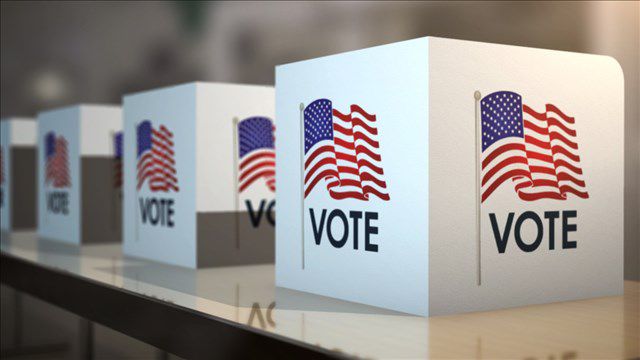By Jim Turner, The News Service of Florida
TALLAHASSEE — In a battle about a constitutional amendment passed last November, a federal judge said Friday that Florida cannot deny the right to vote to felons who have served their sentences but are “genuinely unable” to pay legal financial obligations.
The ruling, however, was only a partial victory for voting-rights and civil-rights groups that challenged the constitutionality of a new state law designed to carry out the constitutional amendment. Those groups have likened part of the law, passed this spring by the Republican-controlled Legislature, to a “poll tax.”
The constitutional amendment restored voting rights to felons “who have completed all terms of their sentence, including parole or probation,” excluding people “convicted of murder or a felony sexual offense.” But the law passed this spring drew challenges because it requires felons to pay “legal financial obligations,” such as restitution, fines and fees, to get their rights restored.
Republican lawmakers said such financial obligations are part of the terms of sentences. But Democrats and voting-rights and civil-rights groups argued that the law would prevent many felons from getting their voting rights restored.
U.S. District Judge Robert Hinkle, in a 55-page ruling Friday, said people cannot be denied the right to vote if they are “genuinely unable” to pay financial obligations. But he issued a preliminary injunction that applied only to plaintiffs in the case — and not more broadly to other felons who might be affected.
The injunction said that the secretary of state and county supervisors of elections could not prevent the plaintiffs from registering to vote or voting if the elections’ officials actions are “based only on failure to pay a financial obligation that the plaintiff shows the plaintiff is genuinely unable to pay.”
Hinkle pointed to a broader need for state officials to come up with an administrative process in which felons could try to prove that they are unable to pay financial obligations and should be able to vote.
“(The) state can condition restoration of a felon’s right to vote on payment of fines and restitution the felon is able to pay,” Hinkle wrote. “When a felon claims inability to pay, the state need not just take the felon’s word for it. The state may properly place the burden of establishing inability to pay on the felon and, to that end, may put in place an appropriate administrative process. That this places a greater burden on the felon claiming inability to pay than on felons with no unpaid obligations is unavoidable and not improper.”
Voting-rights and civil-rights groups touted Hinkle’s finding that voting rights cannot be withheld because of an inability to pay financial obligations.
“Today the court upheld the fundamental American principle that the right to vote does not belong only to the wealthy,” Sean Morales-Doyle, senior counsel in the Brennan Center’s Democracy Program, said in a prepared statement. “It is now incumbent on the Florida Legislature to clean up their mess, quickly.”
But in news releases, the groups also acknowledged the limited nature of the ruling. A release from four groups said the ruling applies only to the individual plaintiffs, “but the court held that the state must provide a quick and efficient process for others who are also unable to pay their legal financial obligations. Until Florida establishes this process, all other returning citizens who owe legal financial obligations are left waiting.”
Restoration of felons’ voting rights has long been a controversial legal and political issue in Florida. But voters in November overwhelmingly passed the constitutional amendment, known as Amendment 4, that was aimed at restoring most felons’ rights after they have served their sentences.
The Legislature’s subsequent decisions about carrying out the amendment, however, touched off one of the biggest political fights of the 2019 session.
Amid the federal court case, Gov. Ron DeSantis’ administration has gone to the Florida Supreme Court to seek guidance about whether the law properly carries out the constitutional amendment. That case is pending.


This is a no sum gain for liberals or conservatives.
Because 70% of released felons cant be bothered to register and participate in the voting process.
That leaves 30% that would like to vote.
Out of that 30% 15% intend to continue their life of crime and will all vote Democrat. The other 15% want to live good and honorable lives and will all vote Republican. This cancels out to a zero sum gain math geniuses.
See Democrats there are no “free votes” for you as a result of the process.
Hey Snidely, its not the 30% who want to vote that’s bothersome…it’s the 70% who will never vote. The Dems will use this 70% as an expanded pool of “eligible” voters to “play with” to steal close elections…They’re already exploiting absentee ballots, expanded voting times, and fight against voter ID laws…they dont need another “opportunity” for voter fraud.
rural meth abusers re-offend regularly and they vote republican….but okay.
That’s just a purely ignorant statement. What is the verifiable source on which you rely? Your failure to respond will mean you have no source other than your own stupidity.